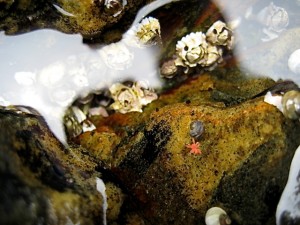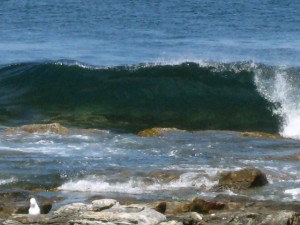“I’m not a schemer. I try to show the schemers how pathetic their attempts to control things really are,” says the Joker in the hospital scene of The Dark Knight, 2008.
James Holmes dyed his hair orange, became the Joker, and in REAL LIFE—at the midnight screening of The Dark Knight Rises in Aurora, Colorado—unleashed a fatal assault upon an unsuspecting movie audience.
The Joker is a Trickster. The trickster is a force of nature, an agent of chaos with no attachment to the material world. The trickster’s objective is to disrupt the prevailing order, to break the rules with abandon. The trickster’s pranks may indeed result in tragedy, as evidenced in the horrific Aurora massacre, but they may also reveal truths and weaknesses that if faced squarely might lead to needed transformation and change.
Evolving human consciousness has relied upon spiritual institutions to mediate between its rational, civilized, ordered ego self and the powerful, chaotic energies of the instinctive self. Religious ritual has traditionally offered sacrifice to the instincts in exchange for energy needed to fund the structured, ordered objectives of the ego self in the modern world. In our time, similar to the crumbling of the absolute power of the Catholic Church during the Protestant Revolution, the reigning churches of the day have lost their ability to serve this mediating function.
In fact, modern humanity has become so rational that it has disowned its animal core, and religious affiliation or participation has largely become a place of social gathering or identity. The prevailing consciousness views religious institutions as relics of an unenlightened age.
What has largely replaced the mediating function formerly performed in religious ritual, in today’s world, is Hollywood. It’s a throwback to the days of the gladiators in the Coliseum in Rome or the bullfights in Spain. The modern movie theater is the setting where citizens vicariously project their instinctive energies onto the projections on a screen, as these images duke it out in epic battles of good versus evil. Moviegoers experience contact with their deep instinctive energies through powerful emotions that are enlivened and released, with the outcome being inner balance restored when they are safely delivered back to ordinary life as the movie concludes.
The massacre in Aurora instructs us that the sanctuary of the movie house has ended. It can no longer safely contain our psychic forces. The trickster broke through the screen in Aurora, showing us that the movie house can no longer safely mediate between our ego and deeper instinctive selves. The trickster has shown us that the psychic mechanism of PROJECTION—placing the issues and dangers within us outside of us onto some form of screen—can no longer keep us safe. We must grapple with the psyche directly, finding a new balance, a new relationship to the deep instinctive forces that both threaten us and enliven us.
On a global level, this tenuous balance is evident on every front. Global warming, with its consequent natural disasters, shows us the precarious hold humanity’s decision making has over nature’s wrath. Is it really time for another flood? Or will we do better?
Revolutions sprout up almost daily throughout the world as the urge for change and greater freedom press to topple outdated, repressive regimes.
Revolutionary energy is stirring throughout Europe and the United States from the economic underclass, as they balk at giving more while the 1% accumulate more. This is the energetic climate of Germany preceding the outbreak of Nazism.
All these revolutionary stirrings are threatening to disrupt if not submerge the world as we have known it. All are direct reactions to the collective world ego’s actions in relation to its deeper instinctual needs—nature reacting, both within and without.
On an individual personal level, we are all charged to deal with the psychic balance within our own beings, that is: between our conscious ruling selves and our unconscious instinctive selves.
Those in the midst of recapitulation are well aware of the tenuous balance between the psychic energies of their fragmented selves and their conscious selves. These individuals have heeded the trickster’s warning and have set to the inner work of integrating their deeper truths, to open a cooperative partnership with the deep unconscious.
But for those not currently in the throes of recapitulation, the urgency of the trickster’s exploits must be seen as THE CALL to introversion—to the facing of inner truth.
What are the ruling attitudes of my conscious ego? Are those attitudes listening to my inner revolutionaries: my symptoms and fears? What is my relationship to my deeply instinctive self—to safety, to hunger, to sexuality, to power? Am I being honest with myself? What is the true reality of my psychic economy?
We need to take responsibility for bringing our psyches into new and lasting balance, and not allow the collective imbalance that surrounds us to lead us into hopelessness and surrender. To attend to the self is to bring real change to the interconnected world that we are all part of. To place this call to action upon the self is to honor the victims in Aurora for their sacrifice.
May their sacrifice lead to a transformation that ends the need for human sacrifice as a means to needed change.
Reeling in the projection,
Chuck










